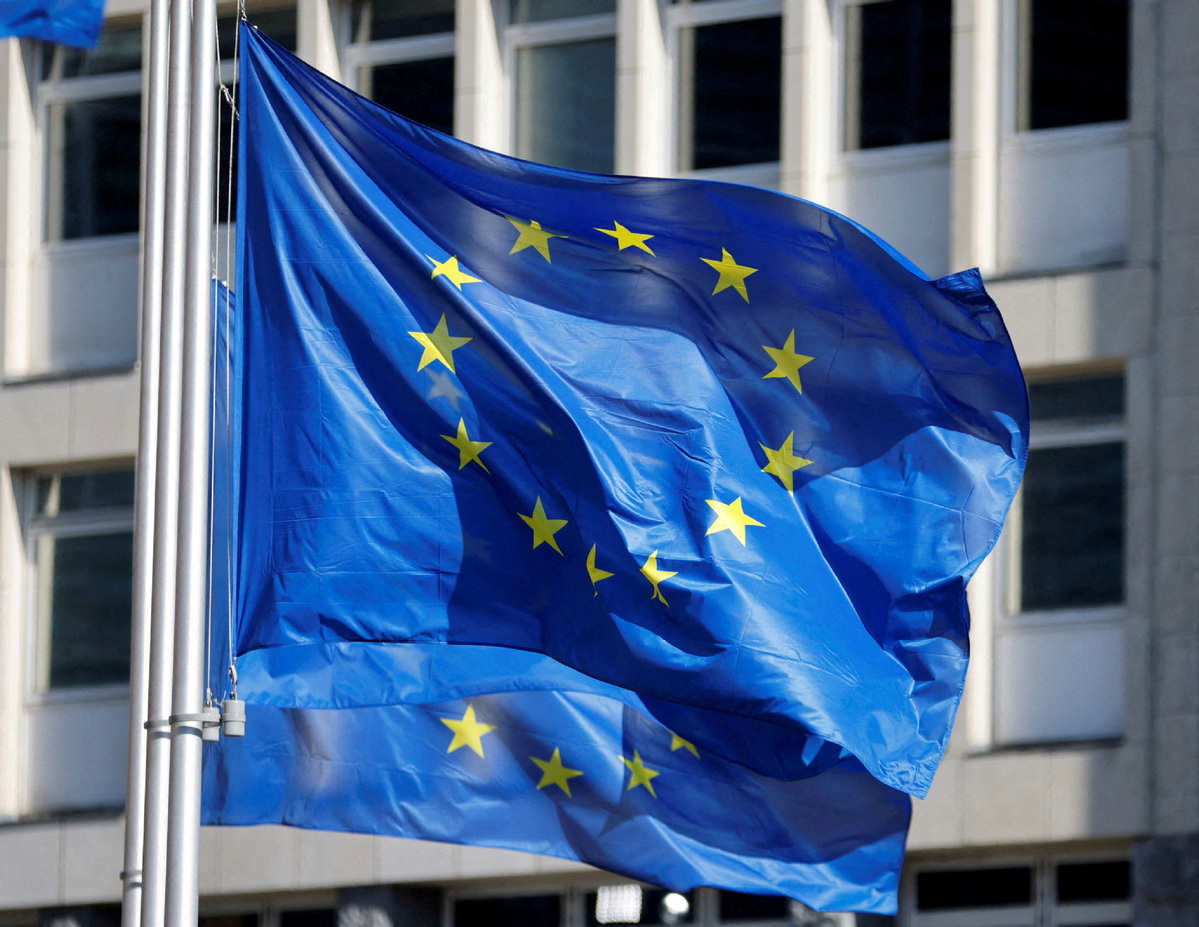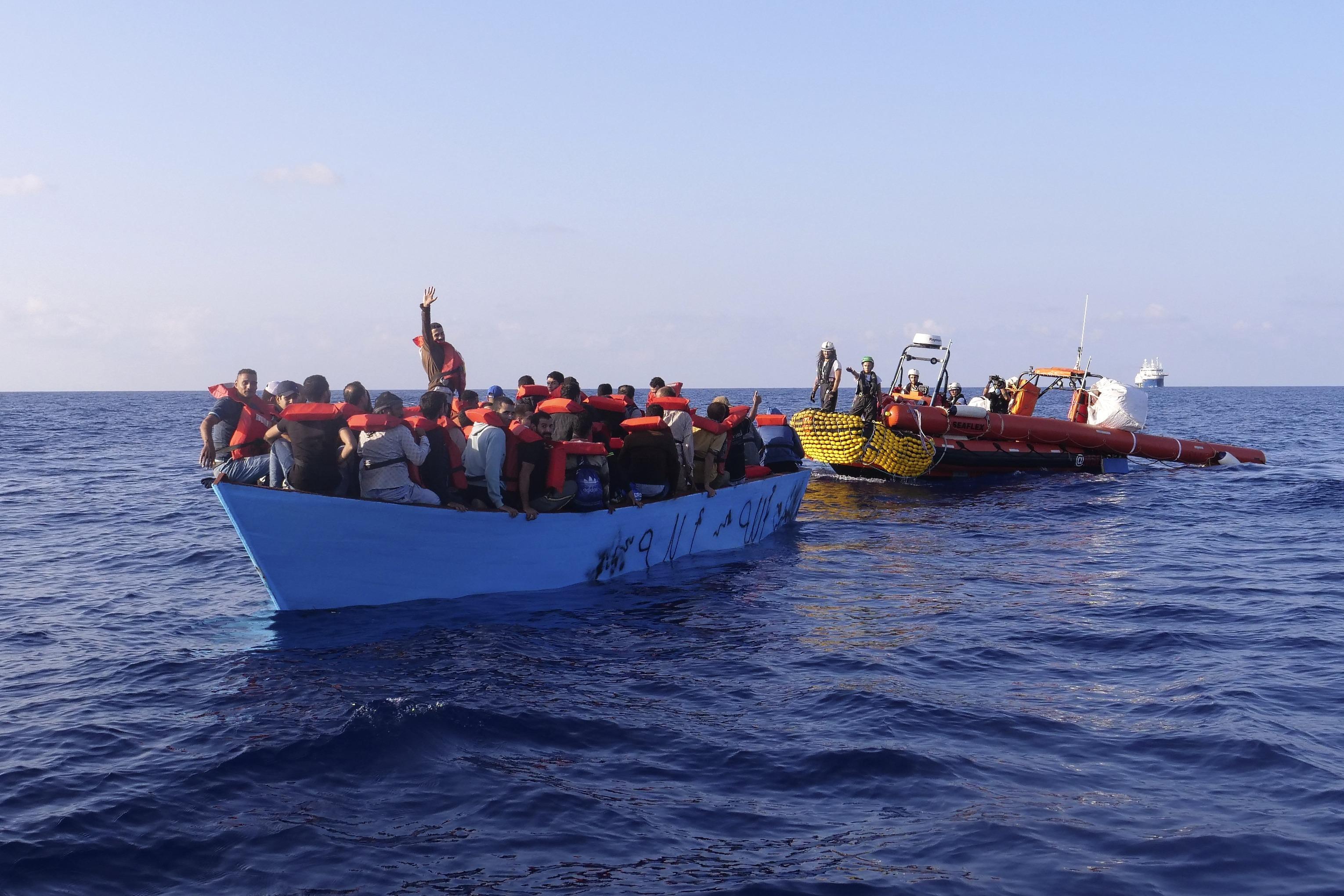EU Agrees New Deal On Migration System, Implementing Tightened Asylum Rules
EU agrees new deal on migration system, implementing tightened asylum rules. The consensus was reached in the early hours of Wednesday with the new regulations aimed at distributing the responsibilities and expenses associated with hosting migrants more equitably while also establishing measures to control the influx of individuals.
Author:Suleman ShahReviewer:Han JuDec 21, 20232K Shares42.2K Views

EU agrees new deal on migration system, implementing tightened asylum rules. The consensus was reached in the early hours of Wednesday with the new regulations aimed at distributing the responsibilities and expenses associated with hosting migrants more equitably while also establishing measures to control the influx of individuals.
Following extensive overnight discussions, representatives from both the European Parliament and EU member states finalized an agreement on the set of laws collectively known as the New Pact on Migration and Asylum. These regulations are slated to be implemented starting next year.
The legislation encompasses protocols for screening irregular migrants upon their arrival in the European Union, the processes for managing asylum applications, guidelines for determining the EU member state responsible for handling these applications, and strategies for addressing crises.
While migrant arrivals in the European Union have significantly decreased from the peak of over 1 million in 2015, there has been a gradual uptick from the 2020 low. In the year leading up to November, there were 255,000 arrivals, with over half of them crossing the Mediterranean from Africa, predominantly destined for Italy.
Italian Interior Minister Matteo Piantedosi hailed the pact as a "significant triumph" for both Europe and Italy, emphasizing that EU border nations facing the brunt of migration challenges would no longer bear the burden alone.
German Chancellor Olaf Scholz expressed the importance of reaching an agreement on past challenges and providing relief to affected states, including Germany. Past attempts to distribute the responsibility of hosting migrants faced obstacles, especially from Eastern EU members who were hesitant to accept individuals arriving in countries such as Greece and Italy.
"The EU reached a landmark agreement on a new set of rules to manage migration and asylum," Roberta Metsola, president of the European Parliament, said on X.
Under the new framework, countries not located at the border will face a choice: either accept their designated quota of 30,000 asylum applicants or contribute a minimum of 20,000 euros ($21,870) per person to an EU fund.
The proposed screening system aims to differentiate between individuals requiring international protection and those who do not. Asylum seekers with a low likelihood of success, such as those from India, Tunisia, or Turkey, may be barred from entering the EU and detained at the border, alongside individuals perceived as security threats. The processing of applications is slated to be expedited.
Numerous charitable organizations, including Amnesty International, Oxfam, Caritas, and Save the Children, have voiced their criticism of the pact. In an open letter (PDF), these organizations argue that the proposed package will replicate ineffective strategies from the past and exacerbate their negative repercussions.
"If adopted in its current format, it will normalize the arbitrary use of immigration detention, including for children and families, increase racial profiling, use 'crisis' procedures to enable pushbacks, and return individuals to so-called 'safe third countries' where they are at risk of violence, torture, and arbitrary imprisonment," the letter by 56 NGOs said.
"We should strengthen, not weaken, our reception and asylum systems and provide mechanisms to fairly share responsibility between European states," it added.
Amnesty also pointed out that the agreement further solidifies the EU's reliance on external states to handle migration, extending from recent arrangements with countries such as Albania, Libya, Tunisia, and Turkey.
Conclusion
"Rather than investing in dignified reception within the EU and expanding safe and regular pathways to allow people to reach protection in Europe without relying on dangerous journeys, this amounts to a further step towards externalizing border control and evading Europe’s refugee protection responsibilities," it said.
Jump to

Suleman Shah
Author
Suleman Shah is a researcher and freelance writer. As a researcher, he has worked with MNS University of Agriculture, Multan (Pakistan) and Texas A & M University (USA). He regularly writes science articles and blogs for science news website immersse.com and open access publishers OA Publishing London and Scientific Times. He loves to keep himself updated on scientific developments and convert these developments into everyday language to update the readers about the developments in the scientific era. His primary research focus is Plant sciences, and he contributed to this field by publishing his research in scientific journals and presenting his work at many Conferences.
Shah graduated from the University of Agriculture Faisalabad (Pakistan) and started his professional carrier with Jaffer Agro Services and later with the Agriculture Department of the Government of Pakistan. His research interest compelled and attracted him to proceed with his carrier in Plant sciences research. So, he started his Ph.D. in Soil Science at MNS University of Agriculture Multan (Pakistan). Later, he started working as a visiting scholar with Texas A&M University (USA).
Shah’s experience with big Open Excess publishers like Springers, Frontiers, MDPI, etc., testified to his belief in Open Access as a barrier-removing mechanism between researchers and the readers of their research. Shah believes that Open Access is revolutionizing the publication process and benefitting research in all fields.

Han Ju
Reviewer
Hello! I'm Han Ju, the heart behind World Wide Journals. My life is a unique tapestry woven from the threads of news, spirituality, and science, enriched by melodies from my guitar. Raised amidst tales of the ancient and the arcane, I developed a keen eye for the stories that truly matter. Through my work, I seek to bridge the seen with the unseen, marrying the rigor of science with the depth of spirituality.
Each article at World Wide Journals is a piece of this ongoing quest, blending analysis with personal reflection. Whether exploring quantum frontiers or strumming chords under the stars, my aim is to inspire and provoke thought, inviting you into a world where every discovery is a note in the grand symphony of existence.
Welcome aboard this journey of insight and exploration, where curiosity leads and music guides.
Latest Articles
Popular Articles
